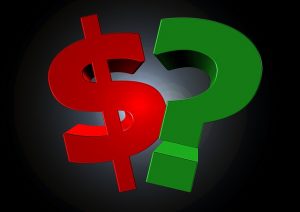Valuing Businesses
 Valuing businesses is, after all, the essence of being able to sell them. Without knowing what a business is worth, how can the price asked be justified? How can a deal be negotiated?
One of the things that I teach in our course is the need to obtain at least three – and preferably five – years of financial records for the business that is being valued. There are a number of reasons for this, not least being that we want to see what the recent history of the business has been.
Looking back five years helps us see if the business has been steady – as opposed to enduring sudden spikes and downdrafts – and we get a good look at whether the owner has been assiduous in his or her bookkeeping, a condition that either gives us faith in the numbers the owners provided – a condition that also makes discussions with buyers easier – or let’s us know that we might have a more arduous valuation project ahead of us and that we may have trouble getting buyers comfortable with the books.
Often it’ll be both.
Valuing businesses is, after all, the essence of being able to sell them. Without knowing what a business is worth, how can the price asked be justified? How can a deal be negotiated?
One of the things that I teach in our course is the need to obtain at least three – and preferably five – years of financial records for the business that is being valued. There are a number of reasons for this, not least being that we want to see what the recent history of the business has been.
Looking back five years helps us see if the business has been steady – as opposed to enduring sudden spikes and downdrafts – and we get a good look at whether the owner has been assiduous in his or her bookkeeping, a condition that either gives us faith in the numbers the owners provided – a condition that also makes discussions with buyers easier – or let’s us know that we might have a more arduous valuation project ahead of us and that we may have trouble getting buyers comfortable with the books.
Often it’ll be both.
Is There a Trend?
_____________________________________________________________________________
Our course, The Basic “How-To” of Becoming a Business Broker”, teaches how to Value businesses.
Become a Professional Business Broker…
I just finished updating a one of the lectures in our course – in the module “How to Value Businesses” – and the discussion on this was expanded somewhat to reflect an approach to valuing a high-growth company. The scenario that was posed was this:A business is eight years old. The owner provides five years of financial information to the business broker for valuation. The first three of those five years showed moderate, reasonable growth rates in the 5%-7% range. This suggested a steadily growing company that should be of interest to many buyers.
But beginning with the next year, that rate started to accelerate, climbing to 1o% in the fourth year and finally to 14% in the final, most recent year. When we charted it, the graph looked like this:

Confirming the Trend
As a rule, businesses are valued on historic performance – essentially a “rear-view mirror” approach. But under certain circumstances, a business can be valued using a more forward-looking approach.Gazing Into the Proverbial Crystal Ball
 That said, if you’re in the brokerage trenches long enough, you know that many owners will tell you that, if a buyer does this, or if a buyer adds that – or if a buyer does something else – the sales would increase to X and therefore, the business should be valued based on X.
To quote that wise and wizened philosopher, Ron White, “I don’t think so, Scooter.”
A business with the potential for growth – particularly if that potential can be realized only if someone (such as the buyer) takes certain actions – cannot be valued with that growth priced in. A business where the actions have already been taken and the growth is now starting to materialize can, within certain parameters, be valued based on that projected growth.
That said, if you’re in the brokerage trenches long enough, you know that many owners will tell you that, if a buyer does this, or if a buyer adds that – or if a buyer does something else – the sales would increase to X and therefore, the business should be valued based on X.
To quote that wise and wizened philosopher, Ron White, “I don’t think so, Scooter.”
A business with the potential for growth – particularly if that potential can be realized only if someone (such as the buyer) takes certain actions – cannot be valued with that growth priced in. A business where the actions have already been taken and the growth is now starting to materialize can, within certain parameters, be valued based on that projected growth.
The Bottom Line
In my opinion, five years’ worth of financial information is enough – and much more useful than three – to detect any recent trends and to tell the broker who is valuing the business whether more discussions with the business’ owners are advisable. If you list a business for sale, you have to be able to justify – indeed, defend – your numbers. With the proper data properly presented, your numbers should be unassailable._____________________________________________________________________________
Our course, The Basic “How-To” of Becoming a Business Broker”, teaches how to become a professional business broker.
Become a Professional Business Broker…
 #business #businessacquisition #sellabusiness #becomeabusinessbroker #businessbrokering #businessvaluation #MergersandAcquisitions
#business #businessacquisition #sellabusiness #becomeabusinessbroker #businessbrokering #businessvaluation #MergersandAcquisitions
